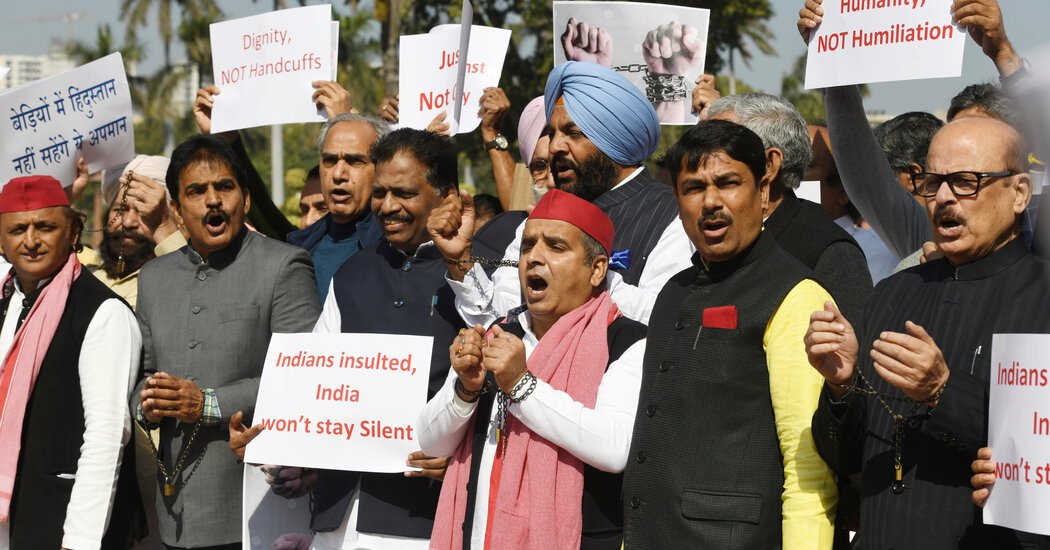U.S. Military Deportation to India Creates Headache for Trump Ally
The Indian Parliament erupted into an uproar on Thursday over reports that illegal migrants being deported to the country on an American military plane had faced mistreatment, including being shackled during the long intercontinental journey.
More than 100 illegal immigrants were returned to India on Wednesday. While deportations are nothing new — India is a big source of unauthorized migration to the United States — most have relied on commercial flights.
The use of a military aircraft, along with the claims of mistreatment, appear to have hit a nerve, creating a political headache for Prime Minister Narendra Modi days before he is expected to visit President Trump in Washington.
Mr. Modi’s has described the president as a “dear friend.” Officials in India had hoped their declared willingness to work with the United States on taking back migrants would avoid the embarrassment and back-and-forths seen in countries like Brazil and Colombia.
In India, much of the outrage on Thursday was in response to reports in local media, citing accounts of deportees, that they were shackled for over 40 hours and that their access to toilets was restricted.
A video put out by the U.S. Border Patrol showed the deportees boarding the plane in shackles. A spokesman for the U.S. Embassy in New Delhi declined to comment on reports that women and children were shackled.
Sukhpal Singh, a 35-year-old chef from the Indian state of Punjab, who had been arrested upon entering the United States through Mexico in January, was among them, according to his father.
“He told me that he was handcuffed, as were the other adults. His feet were also shackled,” his father, Prempal Singh, said in a telephone interview.
“Everyone around him was tied — adults, both male and female were chained.”
On Thursday, opposition lawmakers staged a protest in Parliament, some wearing handcuffs and carrying signs that read “humans, not prisoners.” They demanded to know how many Indians in the United States were facing imminent deportation.
“Why did we not send our own planes to bring back the Indians, with dignity and respect, instead of a military plane landing on our soil?” Mallikarjun Kharge, the president of the Indian National Congress, said.
In a scramble to control the damage, India’s foreign minister, S. Jaishankar, told Parliament that deportation procedures “provide for the use of restraints,” and he said American officials had confirmed to them that women and children were not shackled.
“We are, of course, engaging the U.S. government to ensure that the returning deportees are not mistreated in any manner during the flight,” Mr. Jaishankar said after the protest.
He told Parliament that U.S. Immigration and Customs Enforcement looks after the needs of the deportees, including food and medical requirements.
“During toilet breaks, deportees are temporarily unrestrained if needed in that regard,” he said.
But his response revealed the delicate balance that his government needs to walk — between containing the domestic uproar and demonstrating its strictness on illegal immigration to the Trump administration.
“Our focus,” he said, should be on a “strong crackdown on the illegal migration industry.”




Post Comment